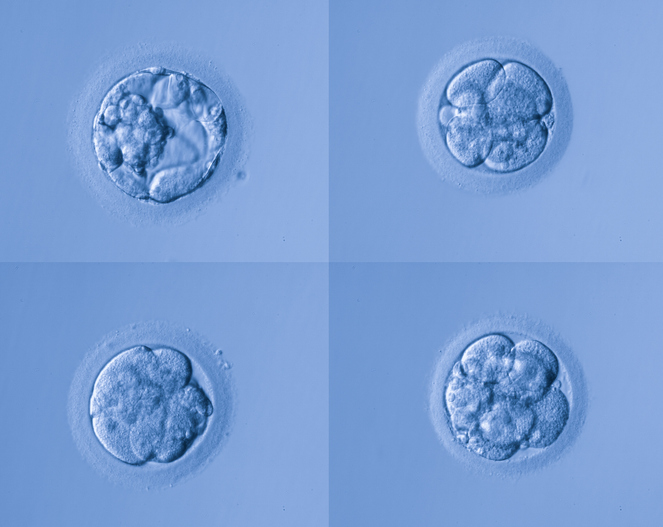

If you were conceived with the help of donor sperm or eggs and are now considering becoming an egg donor yourself, you might be wondering: Does being donor conceived disqualify me from donating? And what if you don’t have access to your biological family’s medical history?
These are valid questions, especially since many donor-conceived people grow up without detailed information about their genetic background. In this article, we’ll explain how being donor conceived impacts your eligibility to become an egg donor, why biological family history matters, and what options exist if you’re missing that information. We’ll also look at how this differs depending on whether you’re pursuing a disclosed or undisclosed donation.
Why egg donation programs ask about biological family history
Whether you were donor conceived or not, all egg donors are required to complete a detailed medical history, including information about biological family members. This family health information helps fertility doctors and intended parents assess the risk of inherited conditions that could affect the child conceived from the donation.
This requirement is about safety and informed choice. Certain conditions, such as some cancers, heart disease, or genetic syndromes, can be passed down through families. A clear understanding of the donor’s family history helps fertility doctors and recipient parents make responsible medical decisions. It also provides important context for donor-conceived children down the road.
If you were donor conceived and don’t know the medical history of both biological parents (including the donor), that could present a challenge. Clinics can’t evaluate genetic risk if they don’t know what conditions might run in your biological lineage.
What this means if you’re donor conceived
Being donor conceived doesn’t automatically disqualify you from donating your eggs. What matters is whether you can provide a detailed medical history for your biological (donor) side of the family as well. Fertility clinics aren’t concerned with how you were raised, they’re focused on understanding the genetic picture that could be passed on to a child born from your donation.
If you were conceived using donor sperm, for example, and you were raised by your biological mother, you’ll likely be able to provide full medical history on her side. But you’ll still need information about your biological father—the sperm donor—for your application to move forward. The same applies if you were conceived using donor eggs; even if you know your intended mother well, you’ll need access to the egg donor’s family medical history in order to be considered as a donor yourself.
If you’re in contact with your donor or know their identity, that makes this much more straightforward. Some donor-conceived people have open relationships with their donor or have connected through DNA testing or registries. Others have obtained medical histories through the original sperm or egg bank, especially if the donor was open-ID or if the bank provides medical updates. If you can access the donor’s medical history through these means—even if you don’t have a personal relationship—that can be enough to meet requirements.
What if you don’t know your donor parent’s identity or health history?
This is a common situation, especially for those conceived from anonymous sperm or egg donation. If you don’t have any information about your donor parent—or if you only have partial details—you’ll likely run into issues during the donor screening process.
The FDA and fertility clinics require a detailed family medical history for egg donors, and not having that information usually means you won’t be eligible to donate anonymously or through traditional egg banks. That’s not a reflection on you—it’s a medical requirement to ensure the safety of the future child and peace of mind for recipient families.
Are there any exceptions?
There are some situations where someone who is donor conceived might still be able to donate:
- Access to donor records or contact: If the donor was open-identity and you’ve connected with them or accessed their medical history through a donor registry or DNA matching site, you might be able to provide the necessary family health information.
- Known donation with informed consent: In some cases, a known recipient may be willing to proceed with donation even if part of your family medical history is unknown. This route typically requires legal contracts and psychological counseling to ensure everyone understands the risks and limitations. Not all clinics accept known donors with incomplete histories, but some may review these cases individually.
What clinics look for in a donor’s medical background
When you apply to be an egg donor, clinics typically want:
- Your own medical history (e.g., chronic conditions, surgeries, medications)
- Your immediate biological family’s health history (biological parents and siblings)
- Extended family medical history going back at least two generations
- A clear record of any hereditary conditions, including mental health, cancers, and genetic disorders
If any of this is missing, such as in the case of anonymous donor conception, most clinics will not move forward with donation unless you’re able to fill in the gaps.
Known donation as a possible path
For some donor-conceived individuals, known donation may offer a viable alternative. This means donating to someone you know—such as a relative, friend, or partner—who is fully informed about your background and still wants to move forward.
In these cases, the recipient may waive the requirement for full biological family history. But you’ll still go through medical and psychological screening, and legal agreements are almost always required to make sure expectations are aligned. Not every clinic accepts known donors without complete medical histories, but some will consider it under the right circumstances.
If you’re thinking about this route, reach out to the intended parent’s clinic or a donor coordination team to find out what’s possible.
What are your options if you can’t donate?
If you don’t qualify to donate because you don’t have enough information about your biological family, you still have meaningful ways to be proactive about your reproductive health:
- Freeze your eggs for your own use. Family history is considered during this process, but not having it doesn’t disqualify you. Your doctor will rely more on your lab results, hormone levels, and personal medical history.
- Advocate for more access. If you’re interested in tracking down more biological information through a donor registry, DNA testing, or open ID donor connections, you may eventually be able to gather what’s needed.
- Explore other forms of family-building support. Many donor-conceived people are passionate about helping others become parents. There are other ways to contribute—whether that’s through advocacy, education, or emotional support.
The bottom line
If you’re donor conceived and don’t have access to your biological family’s medical history, you may not be able to donate your eggs through a traditional egg donation or egg sharing program. That’s because clinics are required to assess inherited risks—and without that information, they can’t move forward responsibly.
However, if you do have access to the donor’s health information, or you’re pursuing a known donation with legal and medical support, egg donation may still be an option. Either way, your interest in helping others grow their families is something to be proud of—and you still have control over your own reproductive choices, even if egg donation isn’t possible.








.jpeg)

